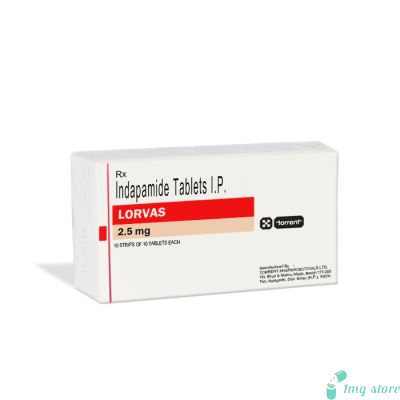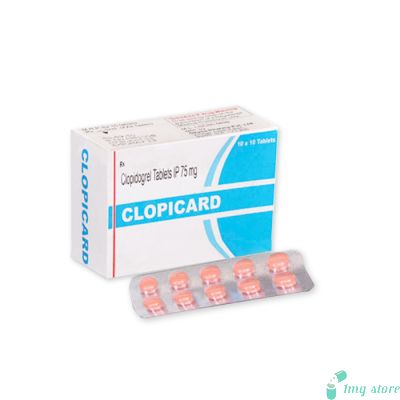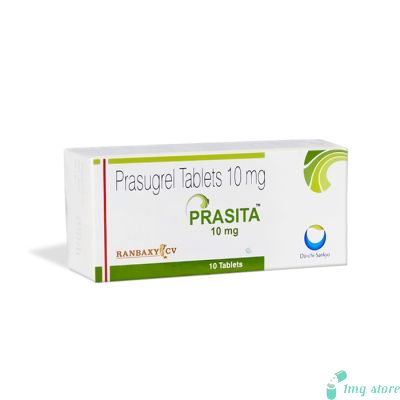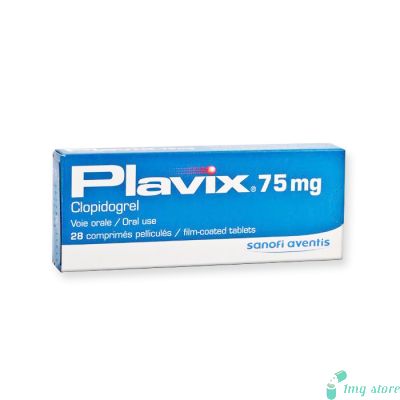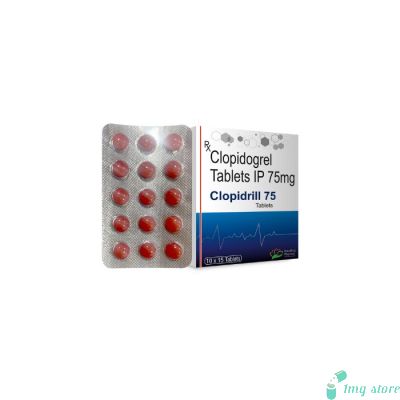Uniwarfin Tablet (Warfarin)
Warfarin Tablet is a medication commonly used to prevent the formation of blood clots in various parts of the body. It is particularly effective in treating blood clots that can occur in the heart, brain, lungs, and other body tissues. It is also sold under the trade name Coumadin.
Warfarin Tablet (Uniwarfin): An Anticoagulant Medication for Clot Prevention
Warfarin Tablet (Uniwarfin) is an anticoagulant medication primarily used to prevent and treat blood clots in the veins, arteries, and lungs. It is also known by the brand name Coumadin. Warfarin works by inhibiting the production of certain clotting factors in the liver, which helps to prevent the formation of blood clots. Uniwarfin also referred to as Coumadin, is commonly prescribed by healthcare professionals to patients at risk of developing blood clots due to various medical conditions such as atrial fibrillation, deep vein thrombosis, pulmonary embolism, and heart valve replacement. By reducing the clotting ability of the blood, Warfarin lowers the risk of dangerous clot formation, thereby decreasing the chances of potentially life-threatening complications such as strokes or heart attacks.
The dosage of Warfarin Tablet (Uniwarfin/Coumadin) varies for each individual and is determined by healthcare professionals based on factors such as the patient's medical condition, age, weight, and response to treatment. It is crucial to follow the prescribed dosage and not exceed or skip doses without consulting your healthcare provider. Regular monitoring through blood tests, such as the international normalized ratio (INR), helps determine the appropriate dosage adjustments.
It is important to note that Warfarin requires close monitoring to ensure the dosage is appropriate and effective for each individual patient. Regular blood tests, such as the international normalized ratio (INR) test, are conducted to measure the clotting time and adjust the dosage accordingly. This personalized approach helps to maintain the optimal balance between preventing clots and avoiding excessive bleeding. While taking Warfarin (Uniwarfin/Coumadin), it is essential to follow the healthcare professional's instructions carefully and inform them about any changes in medications, diet, or lifestyle, as certain foods and drugs can interact with Warfarin and affect its effectiveness.
In summary, Warfarin Tablet (Uniwarfin), also known as Coumadin, is a widely prescribed anticoagulant medication that helps prevent and treat Blood Clots. By inhibiting clotting factors, it reduces the risk of clot-related complications, but regular monitoring and adherence to healthcare professionals' instructions are crucial for optimal results.
Buy Warfarin Tablet at 1mgstore.com:
If you're in need of a Warfarin Tablet, you can conveniently purchase it at 1mgstore.com. The online platform provides a reliable and accessible option to acquire your medication without hassle.
Understanding Warfarin Usage:
It is crucial to have a clear understanding of how to use Warfarin properly. Always follow your healthcare professional's instructions regarding dosage, frequency, and duration of treatment. It is important to take Warfarin consistently at the same time each day, preferably with or without food as directed.
Warfarin Alternatives:
In some cases, healthcare professionals may consider alternative anticoagulant medications based on individual circumstances. These alternatives might include newer direct oral anticoagulants (DOACs) such as dabigatran, rivaroxaban, apixaban, or edoxaban. However, the decision to use Warfarin or any alternative medication should be made in consultation with a healthcare professional who can assess the risks and benefits based on your specific medical condition.
Warfarin Tablet (Uniwarfin/Coumadin) offers several benefits, particularly in relation to heart and blood pressure conditions.
Preventing Blood Clots: Warfarin helps prevent the formation of blood clots, which is essential for individuals with certain heart conditions like atrial fibrillation, artificial heart valves, or a history of blood clots. By inhibiting clotting factors, Warfarin reduces the risk of blood clots that could lead to serious complications such as strokes, heart attacks, or pulmonary embolisms.
Treating Deep Vein Thrombosis (DVT) and Pulmonary Embolism (PE): Warfarin is commonly prescribed for the treatment of deep vein thrombosis and pulmonary embolism. These conditions involve the formation of blood clots in the veins, typically in the legs (DVT), which can dislodge and travel to the lungs (PE). Warfarin helps dissolve and prevent further clotting, reducing the risk of complications and supporting the healing process.
Managing Heart Valve Replacement: Individuals who have undergone heart valve replacement surgery often require anticoagulation therapy. Warfarin is frequently used to prevent blood clot formation around the artificial valves and maintain proper blood flow.
Controlling Blood Pressure-related Complications: High blood pressure (hypertension) can increase the risk of developing blood clots, strokes, and heart attacks. By preventing clot formation, Warfarin indirectly contributes to managing these complications in individuals with high blood pressure.
Warfarin Safety Tips to be Taken, Here are a few Points:
- Adhere to the prescribed dosage and schedule provided by your healthcare professional. Do not alter the dosage or stop taking Warfarin (Coumadin) without their guidance.
- Attend all scheduled blood tests, such as the international normalized ratio (INR) test, to monitor the effectiveness and adjust the dosage if needed. Inform your healthcare professional about any changes in your health status or medications.
- Ensure that all healthcare providers, including dentists and specialists, are aware of your Warfarin usage. It is important for them to consider the potential interactions with other medications or medical procedures.
- Consult your healthcare professional before starting or stopping any medications, including over-the-counter drugs, supplements, or herbal remedies. Some substances can affect the effectiveness of Warfarin or increase the risk of bleeding.
- Maintain a consistent intake of vitamin K-rich foods, such as leafy greens, as sudden changes in vitamin K levels can impact the effectiveness of Warfarin. Seek guidance from your healthcare professional regarding specific dietary recommendations.
- Take precautions to minimize the risk of bleeding, including using a soft-bristle toothbrush and an electric razor for shaving. Be cautious during activities that may result in injury or falls.
- Carry a medical identification card or wear a medical alert bracelet to inform others, including emergency medical personnel, about your Warfarin usage. This can help ensure appropriate medical care in case of emergencies.
- If you are pregnant, planning to become pregnant, or breastfeeding, discuss the potential risks and benefits of Warfarin with your healthcare professional. Warfarin can pose risks to the developing fetus or newborn, and alternative options may be considered.
- Limit or avoid alcohol consumption and refrain from smoking, as these substances can interact with Warfarin and affect its effectiveness.
- Stay informed about Warfarin usage and its potential risks and benefits. Regularly communicate with your healthcare professional and ask any questions or concerns you may have.
Major Utilizations of Warfarin Tablet (Uniwarfin/Coumadin):
Prevention and Treatment of Blood Clots: Warfarin is primarily used to prevent and treat blood clots in conditions such as deep vein thrombosis (DVT), pulmonary embolism (PE), atrial fibrillation (AFib), and heart valve replacement.
Reduction of Stroke Risk: In Heart and Blood Pressure, Warfarin helps reduce the risk of stroke in individuals with atrial fibrillation, a heart rhythm disorder that increases the chances of blood clot formation in the heart.
Prevention of Clots After Heart Valve Surgery: Warfarin is commonly prescribed to individuals who have undergone heart valve replacement surgery to prevent clot formation around the artificial valves.
Treatment of Pulmonary Embolism: Warfarin plays a vital role in treating pulmonary embolism, a condition where blood clots travel to the lungs and obstruct the blood flow.
Prevention of Clots in Patients with Cancer: In certain cases, Warfarin may be prescribed to prevent blood clots in individuals with cancer who are at an increased risk of clotting.
Reduction of Recurrent Blood Clots: Warfarin is used for long-term therapy to prevent the recurrence of blood clots in patients with a history of clotting disorders.
Prevention of Blood Clots in Certain Medical Conditions: Warfarin may be prescribed for specific medical conditions such as antiphospholipid syndrome or genetic clotting disorders to reduce the risk of clot formation.
Common After effects of Warfarin Tablet (Uniwarfin/Coumadin):
Bleeding: Warfarin can increase the risk of bleeding, which may manifest as nosebleeds, bleeding gums, prolonged bleeding from cuts, or easy bruising. In rare cases, severe bleeding in the gastrointestinal tract or brain can occur.
Bruising: Some individuals may experience an increased tendency to bruise, even with minor injuries.
Hemorrhage: Warfarin usage may lead to hemorrhage (excessive bleeding) in certain cases, which can be serious and require immediate medical attention.
Skin Necrosis: Rarely, individuals may develop skin necrosis, a condition characterized by skin death and the formation of painful purple spots or patches.
Hair Loss: Warfarin can cause temporary hair loss, but the hair usually grows back once the treatment is stopped.
Rash or Allergic Reactions: Some individuals may experience skin rash or allergic reactions, such as itching, hives, or swelling.
Nausea and Vomiting: In some cases, Warfarin usage may cause nausea and vomiting as side effects.
Dizziness or Weakness: A small number of individuals may experience dizziness, weakness, or fatigue while taking Warfarin.
Changes in Taste: Warfarin may alter the sense of taste, leading to a metallic taste in the mouth.
Other Side Effects: Other possible side effects include abdominal pain, diarrhea, fever, or changes in skin color.
Inquiries about Uniwarfin Tablet (Warfarin)
Can I consume alcohol while taking Warfarin?
Answer: It is generally recommended to limit or avoid alcohol consumption while taking Warfarin. Alcohol can increase the risk of bleeding and interact with the medication, potentially affecting its effectiveness. It's best to consult your healthcare professional for personalized advice regarding alcohol consumption.
Are there any dietary restrictions while taking Warfarin?
Answer: While on Warfarin, it is important to maintain a consistent intake of foods rich in vitamin K, as sudden changes in vitamin K levels can affect Warfarin's effectiveness. However, there are no specific dietary restrictions, and a balanced diet is encouraged. Discuss any significant changes in your diet, including the consumption of vitamin K-rich foods, with your healthcare professional.
Can I take over-the-counter pain medications, such as aspirin or ibuprofen, while on Warfarin?
Answer: It is generally recommended to avoid or use caution when taking nonsteroidal anti-inflammatory drugs (NSAIDs), including aspirin and ibuprofen, while on Warfarin. These medications can increase the risk of bleeding and interact with Warfarin. It is advisable to consult your healthcare professional before taking any over-the-counter pain medications to ensure their compatibility with Warfarin.
Can I undergo dental procedures while taking Warfarin?
Answer: Dental procedures, such as tooth extractions or dental cleanings, may require special considerations if you are taking Warfarin. It is important to inform your dentist about your Warfarin usage, as they may need to coordinate with your healthcare professional to adjust your dosage or take precautions to minimize bleeding risks during the procedure.
What should I do if I miss a dose of Warfarin?
Answer: If you miss a dose of Warfarin, take it as soon as you remember, unless it is close to the time for the next scheduled dose. In that case, skip the missed dose and resume your regular dosing schedule. Do not take a double dose to make up for the missed one. If you have any concerns or questions about missed doses, contact your healthcare professional for guidance.
Several Drug Connections with Warfarin Tablet (Uniwarfin/Coumadin)
Warfarin Tablet (Uniwarfin/Coumadin) can interact with several medications, potentially affecting its effectiveness or increasing the risk of bleeding. It is important to inform your healthcare professional about all the medications you are taking, including prescription drugs, over-the-counter medications, and herbal supplements.
Some common medications that may interact with Warfarin include nonsteroidal anti-inflammatory drugs (NSAIDs), certain antibiotics, antifungal medications, antiplatelet drugs, anticoagulant medications, and many more. Additionally, certain foods and dietary supplements rich in vitamin K can also interfere with Warfarin's effectiveness. Regular communication with your healthcare professional and close monitoring of your Warfarin dosage and INR levels can help manage and prevent potentially harmful drug interactions.
| Manufacturer | : | Torrent Pharma, India |
| Equivalent Brand | : | Coumadin |
| Generic Search | : | Warfarin |









